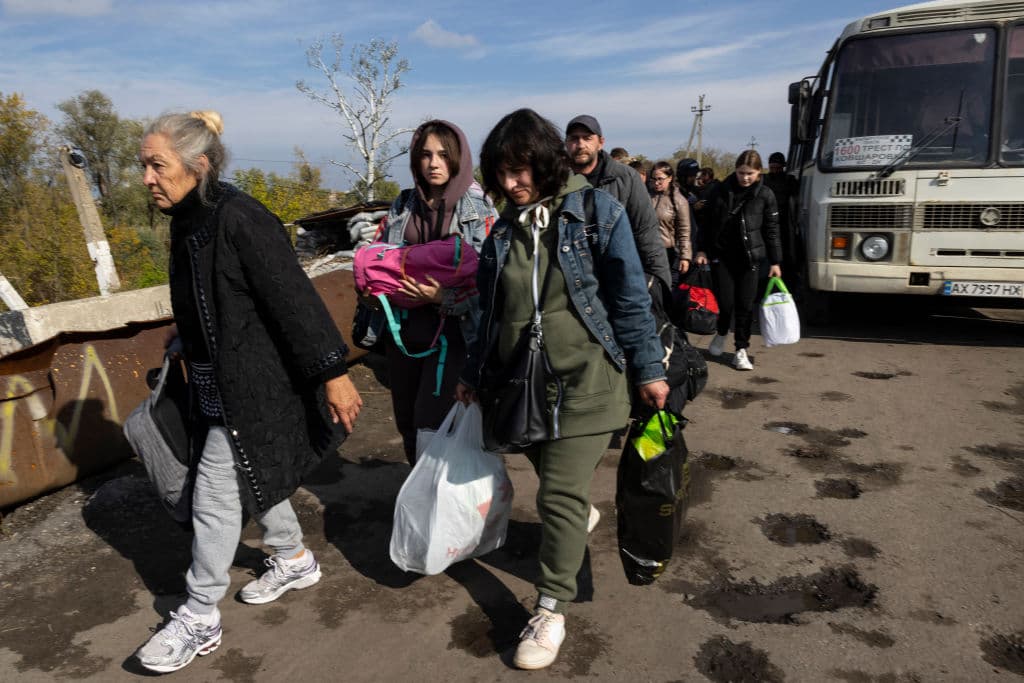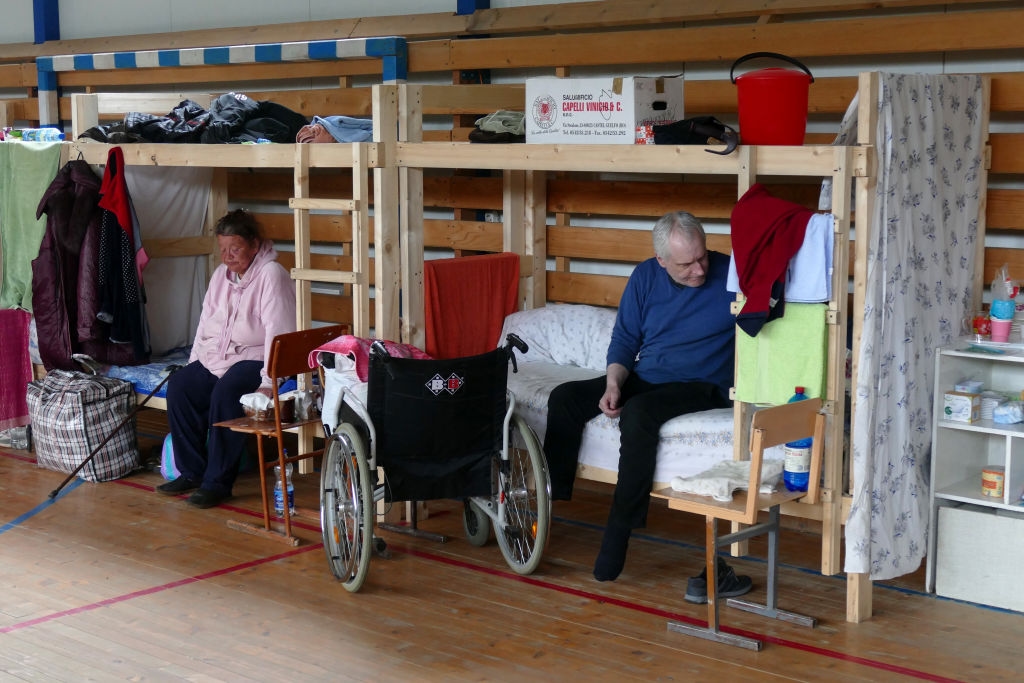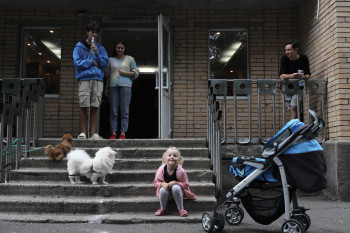UN migration agency says ‘terrible impact’ awaiting Ukrainians as Russia ramps up attacks on energy infrastructure

As winter approaches and Russia’s war continues, Ukrainians living near the front line are faced with the decision to flee or to confront Russian aggression amid Ukraine’s harshest months.
Hundreds of thousands of Ukrainians living in heavily-shelled regions, including embattled Donetsk Oblast, don’t have access to gas. As Russia continues to target Ukraine’s energy infrastructure, cities farther from the front line are also increasingly at risk.
On Sept. 11, Russia launched an attack on Ukraine’s second-largest power plant, causing blackouts across several regions.
“Any attempt to damage those (Ukrainian energy) facilities will have a terrible impact on the capacity to heat those cities,” Director General of the International Organization for Migration (IOM) Antonio Vitorino said during his visit to Kyiv in September.
Vitorino stressed that there is “an urgent need for the international community to scale up their support to Ukraine.”
While he can not predict whether there will be a large influx of people fleeing Russian aggression ahead of winter, the U.N. official said internally displaced Ukrainians are in “highly stressful” situations.
The majority of people currently displaced in Ukraine are elderly or those with disabilities and most are in need of cash-based interventions, according to Vitorino.
“We anticipate that the needs will be on the rise,” he said.
Harsh reality
Internally displaced Ukrainians struggle to get by each day after having fled their homes, according to coordinators at Ukrainian evacuee shelters.
Amid war and high unemployment, which according to the National Bank reached 35% in July, Ukrainians that have escaped war zones are often forced to start working to support themselves.
Kate Chernova, a coordinator at a refugee shelter in Zaporizhzhia, said large waves of internally displaced people come and go every day. Because the shelter has a capacity of only 100 people, she said those who have just arrived need to think about their next move almost immediately.
She noted that many are not ready to move far away from their homes because they still cling to the hope of returning soon.
While most people head westward or remain in Zaporizhzhia, some return to occupied territories or hot zones due to financial struggles, according to Chernova. Finding a job is not easy and the monthly social welfare for evacuees barely covers their expenses, she explained. The monthly social welfare for refugees is Hr 2,000 ($55) per adult and Hr 3,000 ($82) per child or person with disabilities.
Chernova said a few people went back to the Russian-occupied city of Mariupol, where living conditions are increasingly dire.
“Many of them are in severe conditions,” Chernova said of the evacuees that arrive at the shelter.

Fearing winter
Another shelter coordinator, Talina Zharikova, said she is afraid of what winter may bring.
There are 270 people living at Zharikova’s shelter in the city of Dnipro. Most of them have been staying there for months. But the abandoned building she is renting to house evacuees needs serious repair ahead of Ukraine’s coldest months and she is worried that they will have nowhere to live.
Zharikova is also afraid that she will be unable to afford the rising utility bills, with which she says local authorities declined to help. They add up to nearly $1,900 per month so she is forced to collect about $15 per month from refugees living at the shelter.
“No one is helping them,” Zharikova said. “It's scary that everyday people do not know what awaits them.”
One of the families living at the shelter came from a village in Donetsk Oblast. Two of the family’s 12 children were killed during evacuation. Now the father is thinking about getting a job, but it would be too difficult for his wife to care for 10 children and their sick grandparents on her own.
But what will happen to them if the shelter’s utility repairs are not completed in time for winter is uncertain.
Amid heightening risks of unprecedented Russian attacks on energy infrastructure across Ukraine, Prime Minister Denys Shmyhal urged that “we must be prepared for Russian terrorist attacks against our critical infrastructure.”
“After seven months of a full-scale war, everyone already understands that we are dealing with a terrorist country,” Shmyhal said at a government meeting on Oct. 4.










